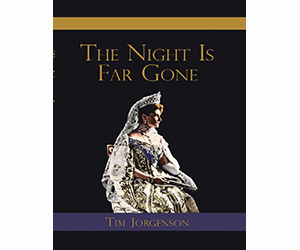One of the first questions I am typically asked after I share with someone that I am raising my child who was conceived when I was raped is, “Does she know yet?” — often accompanied by a look of horror.
I have learned that some regard conceiving a child conceived in rape as necessarily being shameful in itself and/or would lead to a life of fear because of the horrible crime that was committed, and that is sometimes then projected and placed on children like mine. For some, it may be easy to believe that every difficulty in the story ends once life is chosen and a child is born, but nothing can be further from the truth.
 It would be nice if once you are able to stop a rapist from seeking custody and visitation with your child, that there is then finally a chance for the pain to all be done and over with, but the stigma that is associated with the precious child who you love so much needs to be overcome to make this world a better place for equal love and respect for your child, regardless of how he or she was conceived.
It would be nice if once you are able to stop a rapist from seeking custody and visitation with your child, that there is then finally a chance for the pain to all be done and over with, but the stigma that is associated with the precious child who you love so much needs to be overcome to make this world a better place for equal love and respect for your child, regardless of how he or she was conceived.
I hope that one day the first question I hear is something parents freely share with one another, such as: “What kinds of hobbies does she have?” and I could talk about how she has a great sense of humor and loves to do art projects and to sing. Or even, “Does she like being a big sister?,” and I could say, “Yes, she loves her little brothers very much and they love her lots too!”
But like I said, that is typically not where the conversation starts to go — to the place I want to be where we are talking about how much I love and enjoy the accomplishments and all that is good and unique about my firstborn child. Please consider how difficult it is to endure for a mother like myself who loves all her children with her whole heart. I sure hope that changes one day soon, and I look forward to that day with positive expectation!
My basic human rights were violated when I was raped during his violent attack years ago as I plead for my dignity and humanity, but I think that one of the things I am still having to advocate for is the basic human rights of my child, and other innocent children like mine. Not only am I not an object for use by a rapist, but my child is also not to be reduced to a mere product of a violent criminal act simply because of how her conception took place.
We often have to look no further than the plain writing of the laws that we have in place to get an idea of where our collective social conscience is on a particular issue, and also where it may be headed in the future. In a situation like mine — where a woman is raped and becomes pregnant as a result of that rape, the human rights violations are twofold: the violation of the woman, and then also the violation of the child because of how they are systematically singled out within legislation. This is unacceptable in any truly free society.
Ironically, if you look through any convention or treaty under international law, I have not been able to find any language that specifies an inherent right to an abortion if the race of the unborn child is for some reason determined to be objectionable, or eye color, or gender that would trigger a right to an abortion to attach under the law, including the laws of the United States. That would be considered outrageous — an affront to human rights and human dignity, and possibly even regarded as a dogma for genocide if race or ethnicity were the targeted trait. And so, it is unclear to me why a specific classification — “conceived in rape” — is targeted under the law as an inherent right to seek an abortion or to be exempt from regulations or certain protections and limitations merely based upon the facts of how someone’s conception occurred. There is no logic for this discrimination, just as there would be no logic to have an inherent right to have an abortion for any of the other reasons named above.
Fear is never a logical reason for something to be legislated, as history has proven time and again all over the world. So I ask: what are you really afraid of? Surely not my sweet little girl. . . .
LifeNews: Analyn Megison is a co-founder / Board Member of Hope After Rape Conception — www.hopeafterrapeconception.org, and a blogger for Save The 1. She’s a graduate of Florida State University College of Law and a rape survivor who fought her rapist for custody of her daughter. In her second year of law school, she was a visiting student at Georgetown University Law Center and interned with a federal judge in Washington, D.C.. She was appointed as the Special Assistant on Women’s Policy for the Office of the Governor of Louisiana, and she currently serves on a Domestic and Sexual Violence Task Force in Florida. Analyn is married, living in Florida with her husband and children.







